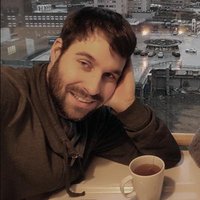Veit Schwab
University of Warwick, Centre for Applied Linguistics, Department Member
- University of Warwick, Politics and International Studies, PAIS, Department Memberadd
Politische Pädagogik muss den unterschiedlichen Wissenspositionen der Akteur/innen Rechnung tragen
Research Interests:
Research Interests:
Research Interests:
In my contribution, I problematize practices of conceptual bordering in Migration Studies and discuss ethical and political implications thereof. Concepts in the field of migration are subject to debates on definition and attribution... more
In my contribution, I problematize practices of conceptual bordering in Migration Studies and discuss ethical and political implications thereof.
Concepts in the field of migration are subject to debates on definition and attribution between policymakers, researchers, and activists. Mostly treated as more or less accurate reflections of ‘reality’, their constitution and the underlying logic of differentiation remain unquestioned.
Using the example of the “refugee”/“labour migrant” dichotomy I show how research, by resorting to static distinctions, risks being complicit with practices of bordering. Conceptual bordering is supplementing modes of differential inclusion that open positions of legitimate presence and participation for some migrants, while others remain excluded.
Against the background of Discourse Theory, Structural Marxism, and the Autonomy of Migration approach, I argue that it is crucial to address the double excess of migration to locate and unsettle these practices: Migration as a social and political reality is (co-) constituted by a surplus of meaning and marked by a surplus of reality, since it always already exceeds conceptual and material borders.
I propose to systematically contrast the privileged academic position of enunciation with migrants’ power to define and contest to rethink ethical modes of research in and beyond the field of migration.
Concepts in the field of migration are subject to debates on definition and attribution between policymakers, researchers, and activists. Mostly treated as more or less accurate reflections of ‘reality’, their constitution and the underlying logic of differentiation remain unquestioned.
Using the example of the “refugee”/“labour migrant” dichotomy I show how research, by resorting to static distinctions, risks being complicit with practices of bordering. Conceptual bordering is supplementing modes of differential inclusion that open positions of legitimate presence and participation for some migrants, while others remain excluded.
Against the background of Discourse Theory, Structural Marxism, and the Autonomy of Migration approach, I argue that it is crucial to address the double excess of migration to locate and unsettle these practices: Migration as a social and political reality is (co-) constituted by a surplus of meaning and marked by a surplus of reality, since it always already exceeds conceptual and material borders.
I propose to systematically contrast the privileged academic position of enunciation with migrants’ power to define and contest to rethink ethical modes of research in and beyond the field of migration.
Research Interests:
Gesamtscheiße. Overall shit. This is the term that popped up when I was working on a collective piece on materialist discourse analysis with a friend. We were looking for ways to refer to the totality of messed-upness around us, the... more
Gesamtscheiße. Overall shit. This is the term that popped up when I was working on a collective piece on materialist discourse analysis with a friend. We were looking for ways to refer to the totality of messed-upness around us, the oppressive structures within (and sometimes against) which we move every day, and the feelings of anger and frustration that we’ve allowed to become all too familiar. A popular term in German left jargon to affectively (and, I would argue, not less descriptively) grasp an impalpable totality of, well, – shit! What does this PhD do with me? If, to rephrase a famous feminist slogan, the academic is political, what does that mean exactly? Working on conceptual borders, on the EUropean border regime always already means working within and against bordering practices and structures, and the oppression they emanate. This leaves traces, and it wouldn’t be an appropriate representation of my PhD journey to silence them. In my paper, I explore three affective dimensions that I have lived during my PhD: Desperation, responsibility, and hope. I am using non-fictional and fictional narrative writing to break with the treacherous comforts of abstract and impersonal analysis. This excursion through the landscapes of my affective conditions of knowledge production is personal; but its movements connect to, and interlace with broader processes of affectionate positioning and processes of in-/exclusion, troubling the idea of affects as something that is ‘internal’ to a subject.
